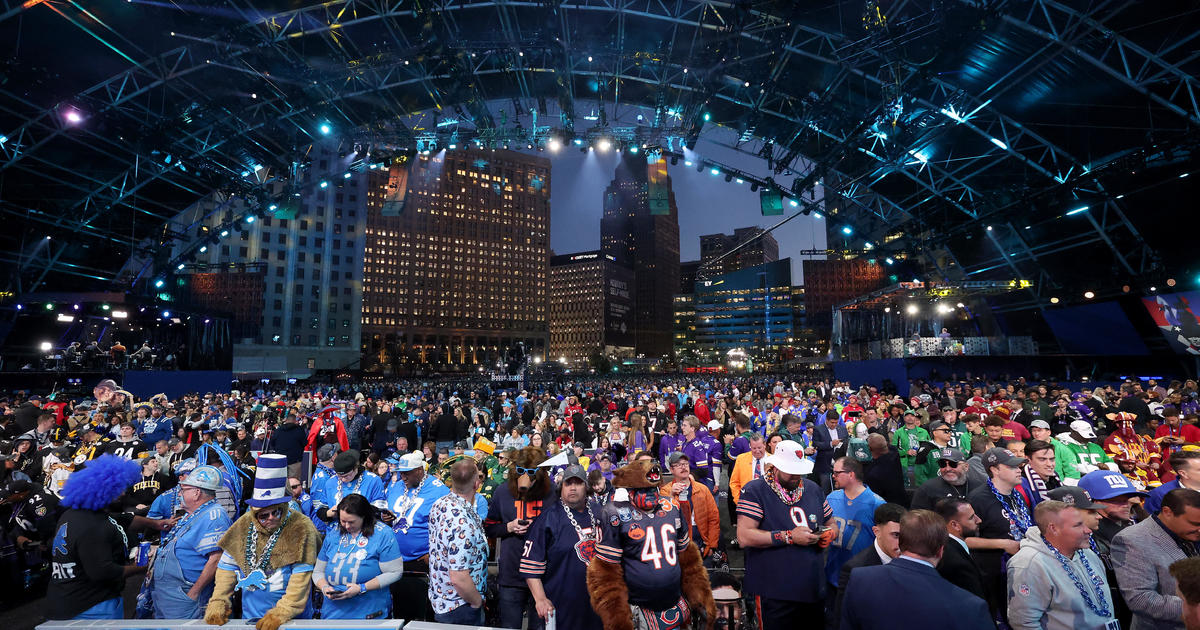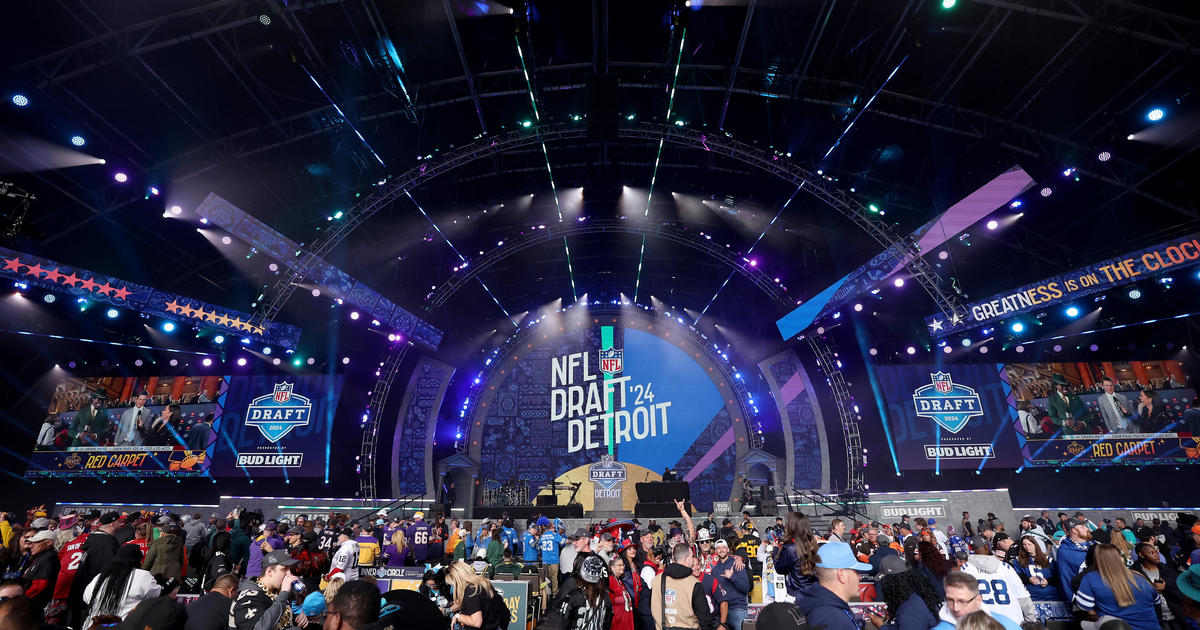Tech Tour Day Three: More Tech Terrific
(Editor's Note: Photos from the Tech Tour are at this link)
How on Earth could Michigan Tech top a spectacular Friday? With an even better Saturday of high-tech research efforts, of course.
My day started at the university public relations office and a meeting with Steve Patchin, who runs a program at Michigan Tech called Mind Trekkers.
Patchin is director of the Center for Pre College Outreach at Tech, and Mind Trekkers grew out of a show called the YES (Youth, Engineering and Science) Expo that Michigan Tech ran for four years in the Detroit area. YES Expo drew as many as 20,000 youth to venues like Ford Field to explore science, but unfortunately ran out of funding.
But Patchin said Mind Trekkers was smaller, nimbler and easier to produce.
"It's a STEM road show -- science, technology, engineering and mathematics -- very high energy, and it's tremendously popular," Patchin said. "We started at YES doing activities that last between 30 seconds and 3 minutes -- stuff blowing up, people walking across a liquid. Then we add music and video, and then we teach the kids the science principles behind everything. The kids get real excited."
Indeed, in a YouTube video you simply must watch, called The Moment -- at http://www.youtube.com/watch?v=cKlc_vYnt4g -- Mind Trekkers is described as a traveling circus of science experiments for children.
Experiments include placing a piece of dry ice in a pop bottle and sealing the bottle, to having kids run across a liquid suspension of corn starch and water called oobleck that behaves as a solid under pressure.
Mind Trekkers is run by Michigan Tech students -- more than 200 are involved, and up to 100 will take part in any Mind Trekkers performance.
Mind Trekkers is offered to groups ranging in age from fourth grade to high school, sponsored by individual school districts, intermediate school districts, community colleges or science festivals.
In the past 12 months more than 500,000 students have been through the Mind Trekkers program. Over the next 12 months, the plan is to put 1.2 million kids through the program.
"We're seeing a huge impact in rural areas" where high schools often lack sophisticated science labs, Patchin said. In fact, he's in the process of applying for a National Science Foundation Grant to take Mind Trekkers across the northern tier of states, from the Upper Peninsula all the way to Idaho.
To bring Mind Trekkers to your school, email shpatchi@mtu.edu or call (906) 487-1136.
Patchin is a Michigan Tech grad who wound up running Best Buy stores in the Detroit area before going back to school for teaching.
----------
I then journeyed out the Keweenaw Peninsula to the town called Gay, where there's a very unhappy area left behind from a crude silver and copper mining technique used there from 1900 to 1932. The Gay Stamp Sands stretch for five miles along Lake Superior, a moonscape dead zone where virtually no plant grows on land and no fish live in the nearby waters.
The sand is what's left behind after ore-bearing rocks were crushed, or stamped, to draw out the precious metals within. Trouble is, the crude process left behind traces of the precious metals in them when they were dumped along the shoreline.
Michigan Tech alumnus Dominic Popko and associate professor Ralph Hodek plan to use more modern technology to pull the metals out of the sand -- while at the same time using some of the sand as a coating for roofing materials or in other building products.
After all, if nothing grows in stamp sand, sprinkle a bit on a shingle and no moss or algae will grow there either.
Roof shingles are 30 percent asphalt and 70 percent rock granules. Currently, shingle manufacturers have to mine the rock, crush it and add copper to retard the growth of moss, lichen, fungus and algae -- persistent problems for homeowners. The Gay coast's stamp sand has already been mined and crushed, and it contains copper naturally.
Hodek of Michigan Tech's civil and environmental engineering department worked for a year to come up with an additive and a process to better adhere the stamp sand to the asphalt.
There are about 500 million tons of stamp sand in the Keweenaw; the biggest deposit, up to 30 feet deep along the shoreline between Gay and Traverse Bay, with even more material on the lake bottom. The sand is primarily basalt with .03 percent copper. That trace amount is all that's needed to give the material its antimicrobial characteristic.
The Gay sands have been extensively sampled and studied by both the US Environmental Protection Agency and the Michigan Department of Environmental Quality. Both studies concluded that the sand is safe for full-body exposure. The Keweenaw County Road Commission owns 68 acres, 30 million tons or more, along 6,000 feet of shoreline, and GreenSand Corp. has a license from the county to use these sands for 19 years.
Popko said a local company called MJO is partnering in the effort and will process the sand into the proper size ot be used in the roofing industry. Eventually, Popko said, that effort should create 80 jobs within three years.
The material may also prove useful in preventing plant growth in other materials, from asphalt pavement to concrete to wallboard.
"This would also be a wonderful underlayment for brick pavers -- it packs down really well and would deter grass from growing," Popko said.
-------------
Next it was back to the Lakeshore Center to meet with a group of very sharp students I'm pretty sure will be able to buy and sell me multiple times before they hit 25.
Clever Cloud Computing is the brain child of Adam Gibson and four partners and is an active Web developer and custom programmer serving several businesses in the Houghton area. The company even has operations in Singapore and China, based on the nationalities of some of its other founders.
Gibson has senior status in computer science and business but is taking a semester off to grow the company. His COO, Aman Bamra, is a senior in computer science, while the CFO, Shu Wei Goh, is a Ph.D. candidate in civil engineering.
The company began operations in June, based on Gibson's curiosity about artificial intelligence research. Currently the company is working on an email and message application based on Google docs that users -- mostly companies -- can customize. It's also working on a social networking application for securities traders for a New York trading company, a data mining application for Michigan Tech and more.
"We're going toward enterprise focused software because to be honest business to business is easier to sell to," Gibson said.
Clever Cloud even has a subsidiary under Shu Wei Goh's control that does business in Malaysia and China.
And the Clever Cloud staff is meeting this week with Kanwal Rekhi, the California venture capitalist who earned a Master of Science in electrical engineering from Michigan Tech in 1969. Rekhi is a computer-networking pioneer who now helps Indian immigrants start businesses in the US.
He and his wife, Ann, donated funds to help build Rehki Hall, home to the Computer Science Department. It opened in 2005. More about Rekhi at www.mtu.edu/gradschool/profiles/rekhi.html.
I'm sure you'll be hearing much more about these guys at www.clevercloudcomputing.com or www.activelogix.com.
----------
Next it was off to the Library -- no, really, the legendary bar and grill by that name in downtown Houghton -- to meet with MTU president Glenn Mroz and David Reed, vice president for research.
Reed said Michigan Tech's new faculty leave policy, which allows faculty and staff to take full or partial leave to join a business, and its Michigan Tech Entrepreneurial Support Corp., a nonprofit company to facilitate commercialization of technology from Michigan Tech, are both about a year old now and are starting to pay dividends.
"We want to double the number of startups coming out of the university," Reed said, from the current three or four a year to as many as eight a year.
One likely candidate for a formal spinout, Reed said, is Husky Games, which started out as a student company under Michigan Tech's enterprise program, and which now has a game for sale on Xbox Live called Arcane Brawlers.
Mroz said employers tend to be very interested in Michigan Tech grads -- a career fair lats weekend drew 700 recruiters from 240 companies, who scheduled 4,200 interviews. Some companies actually had to be turned away because of a lack of hotel space for recruiters in the Houghton area. Mroz also pointed to a recent study showing Tech grads have the 11th highest starting salary of any university in the United States.
----------
Michigan Tech's wonderful PR whiz Jenn Donovan frequently seems to leave the best for last on some of my MTU visits, and this one was no exception. The last appointment was with Ezra Bar-Ziv, a relatively new Michigan Tech professor working on new ways to turn biomass into de facto coal.
After all, that's what coal is -- biomass, plus pressure and time.
"We basically imitate nature," said Bar-Ziv, who joined Michigan Tech's faculty last year as part of the university's most recent Strategic Faculty Hiring Initiative, in which groups of professors are hired in specific areas of study -- in Bar-Ziv's case, advanced energy technologies.
"After all, what does nature do?" Bar-Ziv asked. "It takes a forest, buries it, compresses it, and in 200 million years we have coal. But we don't have 200 million years. We have 10 minutes."
Bar-Ziv's proprietary practice is called torrefaction, from a French word for roasting. Torrefaction involves heating the biomass to 200 to 300 degrees Centigrade (392 to 572 degrees Fahrenheit) in a reduced-oxygen environment, so that the material doesn't simply burst into flames. The resulting material has lower moisture and a greater heat content than raw biomass -- essentially turning biomass such as waste wood shavings into the functional equivalent of coal.
Bar-Ziv came to Tech from the Weizmann Institute of Science in Israel. He is internationally known for his research in the areas of advanced energy systems, particularly more efficient and environmentally friendly coal combustion. He got into the idea of burning biomass instead of coal as a means of both being greener and increasing Israel's energy security.
He remains part owner of a company in Israel, EBClean Energy, that will produce what he is calling biocoal. Eventually he wants a plant in the Upper Peninsula producing the stuff as well. A pilot plant will be located soon at the former Blizzard Snowplow Co. plant north of Hancock that Michigan Tech now owns.
Bar-Ziv said that if the biomass being turned into coal is grown sustainably, biocoal is a sustainable product. And since it's produced from plants that naturally grow, taking up carbon, it's carbon neutral.
Bar-Ziv said he's convinced there will be strong demand for biocoal because of increasing concerns about coal-fired power plants' contribution to greenhouse gas emissions and climate change. Already, he said, the state of Oregon has given coal-fired plant owners until 2020 to find another fuel -- or shut down. He says he believes other states and regions will follow suit.
-------------
I wrapped up my Saturday with a couple of hours of fall color touring and my evening with Michigan Tech's first hockey game of the year, a 5-3 win for Tech's new coach. And so another amazing Michigan Tech visit comes to an end, and all I can say is wow. I feel I can say confidently that the brain quotient here is as high as any in the country. And what a place this is, the magnificent north woods and nature all around! I can see why students would want to stay here -- and why they and the Michigan Tech faculty and community are so interested in building businesses so they can stay. Now it's back below the bridge for my other tech tour visits. I'll be reporting from Central Michigan University in Mt. Pleasant tomorrow.



